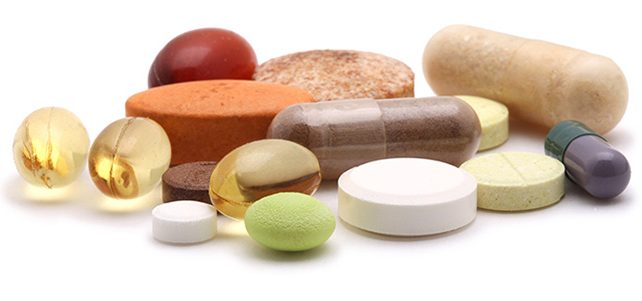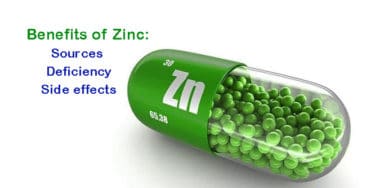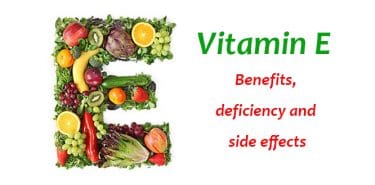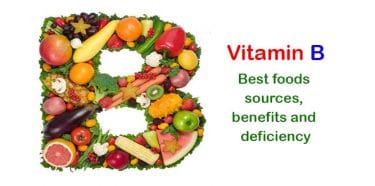CoQ10 (Coenzyme Q10) is a vitamin-like beneficial compound that the body naturally produces. It is used for cell growth, protection from damage and energy production. However, it is recommended to take it as an additional supplement as its production decreases with aging. It also has a function as an antioxidant. It protects the immune system. Furthermore, it reduces oxidative stress, which leads to skin damage, brain and lung diseases. It prevents the development of many diseases such as heart diseases, diabetes, cancer, Alzheimer and hypertension. It can be taken either from foods or as a supplement pill. Red meat, liver, eggs, fish, legumes, spinach and strawberries are rich in Coenzyme Q10.
Table of Contents
What is CoQ10 (Coenzyme Q10)?
Coenzyme Q10 (CoQ10) is a vitamin-like compound which is very beneficial for health. CoQ10 is also known as ubiquinol, ubiquinone and vitamin Q. It is naturally found in every cell in the body. It is an antioxidant that is stored in the mitochondria of cells. Energy conversion is necessary for cellular respiration and ATP production. (1)
Cells use CoQ10 to grow, stay healthy, and protect themselves against free radicals. It can be synthesized in the liver and absorbed from various foods. Low levels in the blood are associated with medical conditions such as cancer, heart and brain diseases.
What is coenzyme?
The enzyme is a protein that functions as a catalyser to accelerate chemical reactions in cells. Coenzyme is a cofactor that helps an enzyme function properly by increasing its effect. It helps adjust the speed of reactions and convert nutrients into energy.
Properties of CoQ10
- Essential component of intercellular electron transport chain
- Absorption is slow and limited due to its high molecular weight
- An oil-soluble quinone that is found everywhere in nature
- Exists mostly in high energy-consuming organs such as the heart, lungs and liver
- Not resistant to high temperature; occurs losses during boiling and frying
- Absorbed well when consumed with fatty foods
- Increases energy
- Has an effect on gene expression
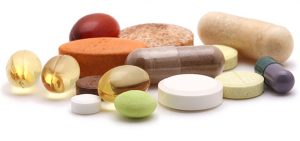
Role of Coenzyme Q10
Its primary function is to contribute to energy production in the mitochondria, which work as energy centers of cells. It supports the production of adenosine triphosphate (ATP), which plays a role in energy transfer. Another important role of it as an antioxidant is to protect cells from oxidative damage and delay aging. It prevents free radical formation, protein and DNA damage.
What is CoQ10 used for?
- In cosmetics with its anti-aging effect
- As an antioxidant as it prevents free radicals
- To increase energy production and physical performance in athletes
- In reducing the side effects of statin
- As supporting treatment of hypertension
- As supportive care for general heart health
- In gingivitis
- For male reproductive health
- To prevent new crisis risk that may occur after a heart attack.
Who should take CoQ10?
The body’s natural production of CoQ10 decreases depending on age and diseases. The amount of CoQ10 decreases in those over the age of 40, those with heart failure, those taking cholesterol medicine (statins), those with diabetes, cancer, Alzheimer’s and Parkinson’s disease, and in immune system diseases such as HIV. Individuals with these conditions are recommended to use supplements by adjusting the dose under the control of a doctor.
Benefits of CoQ10
Many body organs deteriorate with coenzyme Q10 deficiency; cell aging and death accelerate. Along with many minerals and factors such as vitamin C and vitamin B, folic acid, selenium and zinc, it reduces the risk of diseases that may occur during the aging process by strengthening the antioxidant defence of the body.
Slows aging
A decrease in CoQ10 level over time causes aging and the development of chronic diseases. CoQ10 helps keep cells young by contributing to ATP production in the mitochondria, which produce a significant part of cellular energy. It improves cell activity during aging by preventing oxidative stress. (2)
Protects the skin
Our skin is extensively exposed to harmful effects such as cellular damage and UV rays. Over time, skin moisture decreases, layers begin to get thinner and sag. Low CoQ10 levels also increase the risk of developing skin cancer. (3)
Applied directly to the skin, Coenzyme Q10 creams or supplements moisturize the skin by increasing antioxidant protection. It helps reduce sun damage, wrinkles, skin aging and cancer formation.
Protects cardiovascular health
Heart failure is often a result of heart problems such as coronary artery disease or hypertension. These conditions may lead to an increase in oxidative damage and vasculitis. Coenzyme Q10 increases energy production, exercise capacity and heart function by suppressing radicals. It also reduces inflammation and reduces the risk of a heart attack by dilating veins. (4)
Prevents diabetes
Diabetes is a chronic disease caused by the deficiency or ineffective use of insulin. External factors such as malnutrition and stress contribute to its occurrence. CoQ10 may help increase insulin sensitivity and regulate blood glucose. It reduces the accumulation of fat cells which can lead to obesity or diabetes by stimulating fat breakdown. It contributes to the treatment of metabolic syndrome and type 2 diabetes. (5)
Reduces the side effects of cholesterol medicines
Statins taken to lower cholesterol may reduce the production of Coenzyme Q10 and cause side effects such as muscle pains and fatigue. Supplements can increase energy production and reduce side effects. It may slow down the progression of fraility and sarcopenia developing accordingly in the elderly; it may also increase the HDL (good) cholesterol levels, while it may significantly reduce total cholesterol, LDL (bad) cholesterol, triglyceride and glucose in the blood. (6)
Protects brain health
The brain contains a high amount of fatty acids. It requires high level of oxygen and it is sensitive to damages. The mitochondria, the energy centres of brain cells, grow lazy over time and their number decreases, thereby leading to an increase in the level of harmful compounds which affect memory, cognitive abilities and physical functions.
CoQ10 prevents loss of function by supporting the energy production; it slows the progression of dementia, Huntington, Alzheimer’s and Parkinson’s diseases by preventing oxidative damage with its antioxidant effect.
Balances the blood pressure
Some antihypertensive medicines used to treat hypertension may have negative effects such as depression, heart and kidney dysfunction. Studies show that Coenzyme Q10 lowers systolic and diastolic blood pressures, called high and low BP, in patients with hypertension, and thus may reduce the need for multiple medicines.
Reduces inflammation
Chronic inflammation (inflammation) and oxidative stress are associated with cardiovascular diseases, fibromyalgia, multiple sclerosis, diabetes, obesity, renal failure, rheumatoid arthritis, cancer and periodontal diseases. CoQ10 serves as an endogenous antioxidant that effectively suppresses inflammation, resulting in rapid improvement and tissue regeneration.
Supports fertility
Male infertility is associated with oxidative stress, and CoQ10 level in seminal fluid is considered important biomarkers of healthy sperm. It enhances the sperm quality and improves its density, activity and structure by increasing antioxidant protection in infertility treatment. Similarly, it increases the quality of ovaries in women.
Protects the lungs
The lungs are the organs that are in contact with oxygen the most. This situation makes them susceptible to oxidative stress. Increased oxidative damage, decreased Coenzyme Q10 levels, poor antioxidant protection may lead to lung diseases such as asthma and COPD. Supplements can reduce oxidative damage and inflammation.
Does CoQ10 prevent cancer?
Increased oxidative stress causes cell damage and disrupts its structure and functions. If the body cannot fight this damage; the risk of developing cancer may increase due to the damage to the DNA which controls the growth and proliferation of cells. Coenzyme Q10 levels of cancer patients are lower than healthy individuals. CoQ10 prevents cancer development by strengthening the immune system with its antioxidant activity. (7)
Studies indicate that it helps prevent colon cancer, reduces melanoma recurrence and prevents tumour development and metastasis in breast cancer. However, the FDA has not yet approved CoQ10 as a treatment for cancer.
What foods is CoQ10 found in?
CoQ10 exists in foods of animal and vegetable origin in different proportions. The highest content is in variety meats, vegetable oils, red meat and eggs.
- Dairy products: Egg, cheese, yogurt
- Variet meats: Heart, liver, kidney
- Muscle meats: Veal, beef, chicken
- Oily fish: Trout, herring, mackerel, sardine, salmon
- Vegetables: Spinach, cauliflower, mushroom, broccoli, parsley, cabbage
- Fruits: Orange, grapefruit, strawberry, avocado, blackberry
- Legumes: Soybean, lentil, bean
- Dried nuts and seeds: Sesame, pistachio, hazelnut, peanut, walnut
- Oils: Soy, coconut, peanut, canola, grape seed and olive oil
- Whole grains: Bulgur, oats, brown rice
How to use CoQ10?
CoQ10 is available in various forms like gel capsules, shell capsules, oral spray and tablets. It can be taken orally or via intravenous injection. CoQ10 is better absorbed when taken with fat or fat-containing foods. It is best to take it on a full stomach after breakfast. Constant use is recommended to gain benefits.
How much CoQ10 should you take a day?
The amount taken daily from foods is estimated to be around 10 mg. This amount may not be enough to increase the level in those with deficiency. The standard dose is between 100-200 mg/d; however, recommended dose may vary from an individual to another. The highest safe dose is 1200 mg/d, based on controlled human trials.
Coenzyme Q10 price
The price range of supplements varies between $15 to $80 based on the price policy and tablet contents of different brands.
Coenzyme Q10 supplements
Coenzyme Q10 is a food supplement, not a medicine. It is found both as a single dietary supplement at various doses such as 30-60-100-200 mg, and in the ingredients of multivitamin-mineral (MVM) and Omega 3 supplements. It is available over the counter, but it is best to consult a healthcare professional.
Best form of CoQ10
It is available in two different forms with completely different functions:
Ubiquinol
Ubiquinol is its reduced, most absorbable form, constituting 90% of CoQ10 in the blood. It is in the form of ubiquinol in the blood and lymphatic ducts, where it serves as an antioxidant. It switches easily between two forms. Ubiquinol protects against oxidative damage of LDL (bad) cholesterol.
Ubiquinone
Ubiquinone is an oxidized and more stable form. Participates in energy production within a cell. During the energy production, it switches from one to another several times in a second, depending on whether it takes electrons (ubiquinone) or not (ubiquinol). Studies indicate that with a good ubiquinone supplement, the levels of ubiquinol in blood increase significantly. Although both have different physiological functions, they are equally active.
CoQ10 cream for face
As the skin ages, it begins to get thinner and sag, wrinkle and dry, and spots appear. The reason is that collagen, elastin and Coenzyme Q10 which activates them decrease over time. Cells also produce less energy as they age. As the amount of CoQ10 increases, energy production increases and aging slows down. Anti-aging creams containing CoQ10 penetrate the outer layers of the skin and nourish them effectively.
It protects against UV rays on lipids on the skin surface with its antioxidant effect, accelerates the healing process, prevents wrinkles, increases its moisture capacity and makes the skin look smooth and healthy. It must be used every day regularly in order for its effect to be noticed. You should apply it to cleansed skin by massaging gently.
Side effects of CoQ10 supplements
- It is generally considered safe, but side effects such as insomnia, digestive disorders, hives, nausea, head and stomach ache, dizziness, fatigue, loss of appetite, sensitivity to light may appear at high doses.
- It can interact with anticoagulants (blood thinners), medicines for blood pressure and insulin, and increase the risk of blood coagulation. Inform your doctor about all medicines you take.
- It may not be convenient for some types of cancer and may affect chemotherapy medicines.
- Safety during pregnancy and breastfeeding or in children has not yet been established.
- It is not recommended to be used with herbal products as it has a blood pressure lowering effect.

